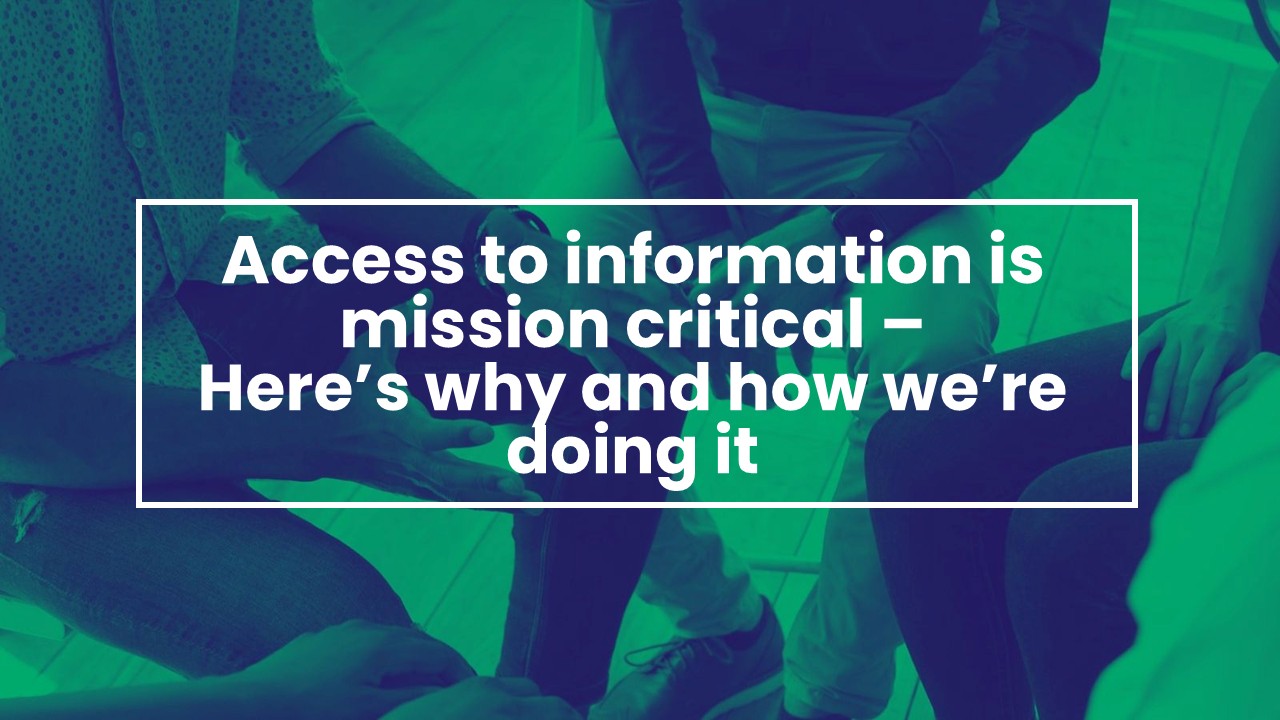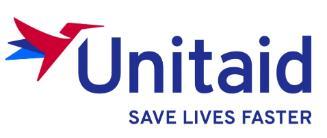
It’s the tenth anniversary of the designation of International Day for Universal Access to Information. We want to show how close we hold this principle within our organisational and research values.
What is the International Day for Universal Access to Information?
Since 2015, UNESCO have recognised 28 September as International Day for Universal Access to Information. The purpose is to highlight how we all have a right to information. It is incredibly important in the digital era to be able to access information we need to make informed decisions about our lives and wellbeing. Access is necessary for us to innovate, and for us to promote social progress and inclusivity.
UNESCO go further than holding a day of awareness and host a large conference of experts every year. The conference is to recognise the significance of access to information, to discuss the potential and the risks of digital innovation and share best practice for a backdrop of good governance around it. They have an International Day for Universal Access to Information playlist on YouTube that includes recordings from these panels.
Why does this sentiment align with CELT?
Under the direction of Professor Andrew Owen and Professor Steve Rannard, the Centre of Excellence for Long-acting Therapeutics (CELT) are focused on creating long-acting versions of already existing drugs. There are many diseases and illnesses where there are either medical preventatives or treatments available, however these medicines don’t always work optimally for patients for various reasons.
We believe that long-acting medication options could remove what is called the ‘pill burden’. This is when lots of oral pills are required over time for a treatment to be effective. These regimens can be hard to keep up with and often mis-timing, let alone missing a dose, can heavily impact the drug’s concentration within the body.
One of the larger projects that CELT oversees is an international consortium project, that is funded by global health agency Unitaid, called LONGEVITY.
What is LONGEVITY?
LONGEVITY fits nicely into CELT’s aims, in that it is a project designed to create long-acting versions of existing medications. These new medications are specifically designed to treat hepatitis C virus and prevent malaria and tuberculosis. The other important aspect of all LONGEVITY work is that arising medications must be prioritised for access in low- and middle- income countries (LMICs) where these three diseases are causing disproportionate devastation and death.
The reason why LONGEVITY is a consortium is because it was clear immediately that, to make sure these medicines reach the people who need them most, we would require a holistic approach that follows the medications from concept to manufacture. The consortium includes preclinical and clinical teams, patent and licencing experts, access organisations and community outreach specialists.
How are we trying to improve CELT and LONGEVITY’s information access?
Community outreach is a key part in our work to improve access to information about what we do. Last year for International Day of Universal Access to Information, Professor Catriona Waitt wrote CELT a guest blog that really explained the importance of seeing ourselves in the research of medication we’re expected to trust. We want to continue to highlight how key this is within our values and mission.
As we’ve already spent time telling you that it’s important to us, this year we want to show you. Here are some of our key actions working towards making what we do findable, to make sure we align with patient and providers needs and wants, and to build trust with patients.
Community engagement:
In June we wrote a piece that formed a LONGEVITY community engagement blog. It was a breakdown of a recent webinar held by LONGEVITY partner Treatment Action Group (TAG). The University of Nebraska Medical Center (UNMC) have been working with TAG for all of LONGEVITY’s community and civil engagement research.
Throughout CELT, Johns Hopkins University School of Medicine and Queen’s University Belfast’s work together on the preclinical research, UNMC and TAG have been hard at work. They reached out to healthcare providers in LMICs, and current and past patients of hepatitis C virus and tuberculosis in LMICs, to see how they view long-acting therapeutics and what their medicine preferences are. So far, there have been three peer reviewed publications to come from the work.
The blog breaks down the 90-minute webinar that brought all the research into one place for the first time. It presented the findings of LONGEVITY’s patient and provider preference research for long-acting options for hepatitis C virus treatments and tuberculosis preventatives . To really illustrate how important community engagement is within this work, the webinar even involved immediate community feedback with two community advocates providing responses within the webinar itself. The blog piece includes links to the recording of the webinar.
While the webinar was around the tuberculosis and hepatitis C virus work, the teams published our community and civil engagement work around long-acting malaria preventative back in August 2023. This work also highlighted the preference for long-acting options in both patients and providers in LMICs.
Community of Practice:
Unitaid have also funded CELT’s Community of Practice for long-acting therapeutics for maternal and paediatric health, being led by Dr Adeniyi Olagunju at CELT. This is a large piece of work sitting within the Perinatal Pharmacology Group. Pregnant and lactating patients, and children, are often a hugely underserved group within medical research, yet they are groups present in every community on the planet. We want to address that within our work.
The Community of Practice is bringing together experts, policy makers, regulators, health care professionals, community leaders, patient groups and more from all over the world. Together they will lead the way creating pathways to improving access to long-acting therapeutics’ clinical trials for pregnant and lactating participants.
While they have been meeting online throughout the year, in July CELT hosted the first in person meeting. We wrote a blog about the maternal health aspects of the meeting for World Breastfeeding Week, and all the recordings from throughout the day are available in a YouTube playlist.
We need to know what impacts a medication has on pregnancy and vice versa for any patients who become pregnant while they have a long-acting medication onboard, how medications affect infants who are breastfed by someone taking them, and if they are safe for children. To build trust in a medication and show people that it is safe, we must have the evidence to show it.
It is so important that people can make informed decisions about their lives, especially decisions that can impact their health. People must be able to find what they’re looking for from trustworthy sources. So, as experts in our field, we strive to make sure that people can find what they need.
CELT are committed to transparency, authenticity in our work, making our research findings open source, and creating versions that use standard language understandable to people outside of our area. These are small steps to bridge the gap between us and the end patients. Add in the steps highlighted above and we hope these will all contribute to LONGEVITY medications not feeling ‘new’ if they ultimately become available to health care providers and patients. We hope that being able to easily find out about all the work that went in to making sure these medications will work, are safe, and fit the lifestyles of those patients most in need, will play a key part in eradicating such deadly diseases that are having such a fatal impact.
#AccessToInfo #AccessToInfoDay #RightToKnow
The LONGEVITY project aims to simplify hepatitis C virus, malaria and tuberculosis treatment and preventative treatment to reduce the drug burden and the number of patients requiring complex therapies for active disease.
Find out more about the LONGEVITY project
The LONGEVITY Project is funded by global health agency Unitaid.

The project also involves critical partners and collaborators in the Clinton Health Access Initiative, Johns Hopkins University, Medicines Patent Pool, Tandem Nano Ltd., Treatment Action Group and the University of Nebraska Medical Center

CELT's Community of Practice for long-acting therapeutics for maternal and paediatric health is also funded by global health agency Unitaid.